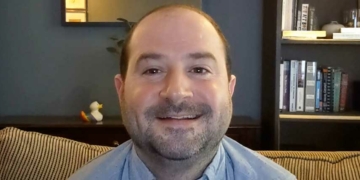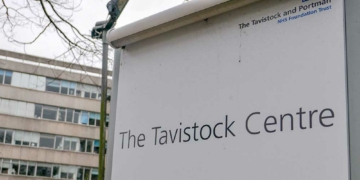The word ‘importuning’ sounds faintly ridiculous; an obscure term from an era when table legs were covered lest they elicit impure thoughts. It refers to male prostitutes soliciting for sex. But in practice, laws against importuning were used for many years by the police to harass gay men. For some, the stigma of this crime casts a shadow under which they spend the rest of their lives.
Richard, not his real name, was cautioned for ‘importuning’ in 1995 when he was 21. It wasn’t until years later that the implications started to bite, and he found himself locked in a legal battle without the backing of gay advocacy groups he was once proud to support.
He says: “The saddest part of the whole affair was that not one gay organisation would take my case on. I tried Galop, Stonewall and the Peter Tatchell Foundation as well as a prominent gay rights campaigner in the House of Lords.”
Having just moved back to London after teenage years scarred by homophobia, Richard was leaving a West End gay club when an older man called to him. As he turned round to answer he was pushed to the ground by police officers and handcuffed. Humiliated and confused, he was hauled away as a crowd departing a neighbouring theatre looked on at the spectacle.
Richard spent six hours locked in a police cell without knowing the reason for his arrest. When he was led out into an interview room, a police officer told him that he could either face the magistrates court in the morning or sign a caution admitting to his ‘crime’. Exhausted and ashamed, despite knowing he was innocent he signed “in the hope it would all go away.”
Last week saw the passing of legislation that goes some way toward correcting such injustices. Men convicted or cautioned for consensual gay sexual activity under historical laws can now apply to have these wiped from their criminal record. Under a previous piece of legislation known as the Turing law, as many as 15,000 gay men were eligible to have convictions expunged, but only 200 successfully did so. Labelled a ‘sexual offence’, importuning was excluded from the Turing law and as such those convicted or cautioned were deemed legally unpardonable.
To men like Richard, the shame and stigma of his arrest did not end when he left the police station; it has shaped his life. After qualifying as a teacher Richard’s career was going well. But in 2008 he was called out of his classroom and into a meeting with Human Resources.
“CRB [Criminal Records Bureau] checks had just been introduced for teachers and it didn’t really occur to me that my caution would be flagged up. It was a massive shock to discover that I had a sexual offence recorded against my name. Everything came flooding back. I was devastated.”
“I was asked to go home. I still remember the burning shame and rage of walking out the gates. The first thing I did when I arrived at my flat, shaking, was to call Galop. They advised me to write a letter to my manager, explaining everything and copying in the police. I know it sounds silly but I was still quite young, so it felt a lot more recent and I wasn’t so self-assured. Thankfully I kept my job”.
Labelled a ‘sexual offence’, importuning was excluded from the Turing law and as such those convicted or cautioned were deemed legally unpardonable.
After a while Richard was promoted to head of the department but the knowledge of his conviction always weighed at the back of his mind. When he was planning to leave a senior manager reminded him of his record, advising him that he might struggle to move on. It was then it occurred to Richard “I’m going to have to explain my record to every single person and to every prospective employer.” He resolved to stay in his role and did so for a further 8 years.
In 2015 Richard accepted voluntary redundancy and was immediately head-hunted for a senior position in an educational setting. He assumed the job was his all bar his signature on the contract until they asked for his DBS (Disclosure and Barring Service having replaced the old CRB).
“People knew me and I was very well respected. I had outstanding references, a glowing resume and everything else. But once I explained the issue with the caution, I never heard back and was too ashamed to follow-up with them.”
After being rejected by countless employers, Richard signed-up with an agency but was told because his caution was for a sexual offence he would not be allowed to teach in schools.
“At my lowest, I was having to explain the caution to each agency and prospective employer. They would Google ‘importuning’; you can imagine the shame. I mean, it’s about rent boys.”
In the space of a few months, Richard went from applying for directorships and managerial posts within the further education sector, to working on casual contracts as a pot-washer. His time outside of work was spent frantically writing to his MP, the police, to gay advocacy groups and to members of the House of Lords, often until the early hours. Ultimately, he was left feeling dejected and to this day feels bitterly let down by Stonewall:
“The most disappointing moment in this hell, wasn’t the homophobia, the injustice or useless politicians, it was the desertion by Stonewall and being told by them that it wasn’t on their agenda. When I called them, thinking they’d advise me, I was Stonewalled. They just told me to go away and find a sympathetic gay solicitor.”
Richard had campaigned with Stonewall during Section 28 alongside his friends, handing-out fliers at protests and going on marches.
“I thought of all the groups I could turn to Stonewall. But they weren’t there for me.
“The Peter Tatchell Foundation were sympathetic but they wanted me to go public and take it to the press like back in the old days of Outrage. I wasn’t about to sacrifice the hopes I had for my career to be used as a poster boy by a campaign group.”
When he tried to explain his situation to a gay campaigner within the House of Lords he was left frustrated as the member appeared not to understand the complexities of the issue.
After a Kafkaesque battle with police bureaucracy Richard launched a legal challenge with the help of a young solicitor “who understood the case perfectly”. Eventually he was exonerated and awarded compensation by the Metropolitan Police.
Richard recalls “clearing my name took over my life.” By chance, having exhausted nearly every avenue, he found an email address in a document on a forgotten corner of a police website through which he could apply for his caution to be removed. But the constabulary set up barriers which he believes were intended to discourage him. After a Kafkaesque battle with police bureaucracy Richard launched a legal challenge with the help of a young solicitor “who understood the case perfectly”. Eventually he was exonerated and awarded compensation by the Metropolitan Police.
“It covered the year’s loss of earnings which was good, but there wasn’t a financial acknowledgement of the harm done to the trajectory of my career or the anguish I’d been made to suffer. Even today it’s hard to explain why there’s a year’s gap on my C.V.
“So when I saw Stonewall crowing about how gay men like me can now have their convictions and cautions quashed, I saw red. I will never forgive them for letting me, and doubtless many other gay men, down – it’s galling to see them using our lives to virtue-signal.
“My current employer are progressive in the truest sense, and it feels good to be working in an educational environment again. What happened to me was wrong and even though I was able to get some redress, I will forever live with the memory. There is at least some comfort in knowing it will not happen again.”
A spokesperson for Stonewall said: “Stonewall doesn’t work on individual advocacy, and we’re also unable to give any information about individuals.”
Jo Bartosch writes for The Critic, Spiked, The Telegraph, The New Statesman, The Article, The Times, Unherd, The Spectator, The Mail on Sunday and is reporter for Lesbian and Gay News.
Photo: Peter Jordan/Alamy Stock Photo (Eros statue, Piccadilly Circus, 1995)
























Comments
No comments yet, be the first to leave a comment.